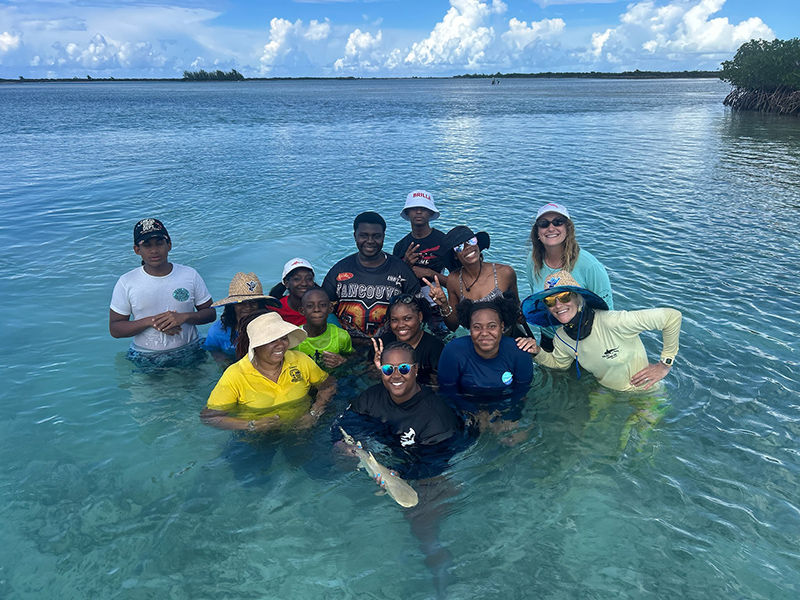Meet Sharks4Kids Regional Ambassador Amy Johnson
- Sharks4Kids

- Mar 20, 2017
- 3 min read
Amy is originally from Kentucky, but a trip to Bimini Sharklab during a university course, opened her eyes to the world of sharks. She has spent time educating the public about sharks and the oceans while working at an aquarist and has realized how important ocean education is. We are thrilled to have Amy join our team!

1. What’s your favorite species of shark and why?
My all time favorite species of shark is the whale shark. Out of all other sharks, to me, these are the most majestic in the ocean, especially being that they’re the largest fish in the ocean. I love that even though they are the largest fish, reaching up to 12 meters or more, their favorite feast is plankton!
2. What is one species of shark you would like to see or swim with?
I would love to swim next to a great white some day. They are marvelous and beautiful creatures. Every time I see a picture of someone right up next to one, I am just simply amazed. Everyone is so afraid of them without any real reason to be. They aren’t these mindless killing machines that so many assume them to be. They are truly magnificent creatures that deserve our respect.
3. Can you tell us a little about your marine science background?
Growing up in Kentucky, learning about sharks was far from anyone’s agenda. However, every summer when I would watch shark week and learn about their importance, I grew more and more intrigued. I decided to pursue my passion to learn more about them and study them and moved to South Carolina to attend Coastal Carolina University. I had the opportunity to partake in the Biology of Sharks study abroad with the Bimini Biological Field Station and it was there that my love for sharks and my passion to pursue their conservation truly erupted. As I learned about each species and their vulnerability with overfishing, shark finning, and bycatch, I decided that I wanted to be their voice and educate others on their importance.
4. Can you tell us about a special ocean moment you’ve had?
While participating in the Biology of Sharks study abroad in Bimini, I had the opportunity to swim with two great hammerheads. My professor told us to dive right in and head over to the line so that we could have a better view of the sharks. Little did my friends or I know that the line was further away than expected and against a strong current. Halfway through swimming towards the line, I finally took a minute to catch my breath and as I looked back down in the water, beneath me was the most beautiful hammerhead shark. It took my breath away and I will never forget that moment. I was no longer focusing on making it to the line. I couldn’t stop staring at that shark beneath and how amazing those seconds were.
5. What inspired you to want to share shark education and conservation with students?
Working with the public as an aquarist made me realize that most people have no clue the importance of sharks in our ocean. In fact, most don’t even know they are fish. I believe that by teaching this to children and instilling in them a passion for conservation, we are helping to protect the future of the marine environment and sharks.

6. Why is shark education important?
Shark education is very important because sharks are very important, not just to the ocean, but to all life. Sharks play a huge role in keeping the ecosystem in check. They are an indicator for ocean health. As Dr. Sylvia Earle said “You should be afraid if you are in the ocean and you don’t see sharks.”





















